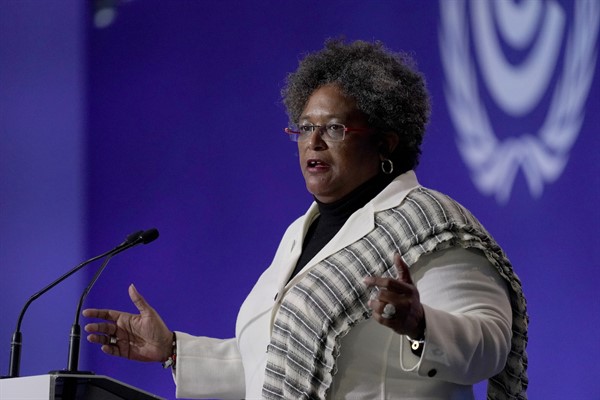Last month, Barbadian Prime Minister Mia Mottley won a stunning landslide victory in the Caribbean nation’s first general election since it declared itself a republic last November. While most analysts predicted that Mottley would likely win a second term as prime minister, few anticipated that her Barbados Labour Party, or BLP, would repeat its unprecedented sweep of all 30 parliamentary seats in the 2018 election that brought Mottley to power.
Back then, Mottley led the BLP to victory by riding a wave of popular discontent with the previous Democratic Labour Party, or DLP, which had been in power for the previous decade. In that time, Barbados weathered the effects of the global financial crisis, experiencing a series of downgrades from international financial ratings agencies, a significant depletion in the country’s foreign exchange reserves, and a steep escalation of the country’s debt to above 100 percent debt-to-GDP. The DLP government of former Prime Minister Freundel Stuart also discontinued a popular program of government-funded tuition for Barbadian university students, eliciting public dismay.
Mottley’s charisma, new ideas and savvy campaign in 2018 offered an appealing alternative to a public tired with the status quo. Her unprecedented election sweep made Mottley the country’s first woman prime minister, while also allowing her to pass a constitutional amendment making Barbados a republic, a significant step in the country’s decolonization and independence process. The move was formalized by removing the queen of England as head of state on Nov. 30, 2021.

